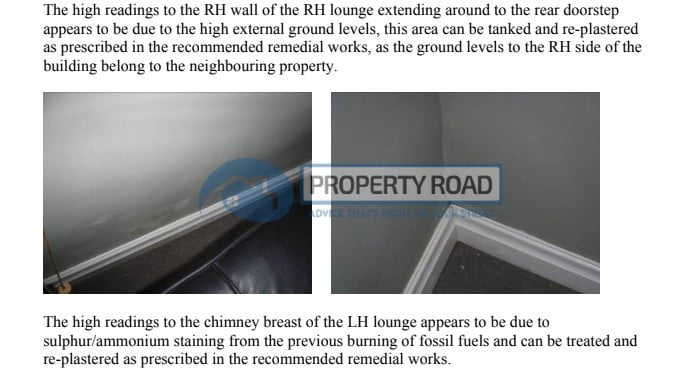It takes time to find your dream home, but exactly how long should you spend viewing a property?
It’s a question many house hunters ask themselves, conscious that they are either overstaying their welcome or not spending enough time making sure the property is right for them.
While there’s no right or wrong answer, there are some guidelines and rules you can follow.
In this article, we are drawing from our own experience to look at the whole house viewing process for buyers to help you find that perfect property.
How Long Should A House Viewing Last?
Typically, 35% of people will spend more than 2 hours viewing a property they go on to purchase.
However, the amount of time you should spend viewing a property will depend on a number of factors, including:
- Whether it’s your first viewing of the property
- How many other parties are known to be interested
- If the building is unusual or has obvious issues
If it’s your first viewing, you may be able to be in and out fairly quickly as you just need to get a sense of whether you’re interested enough to go back for another viewing.
If it’s your last viewing before you put in an offer, or you know you need to move quickly due to other people being interested in it, you’ll need to spend more time to make sure it’s definitely right for you.
If the building needs work doing or is a non-standard construction, you might need to spend more time to work out exactly what the repair and maintenance costs will be.
Typically, a first viewing may only last 20-30 minutes whereas later viewings may need you to spend 60 minutes or more at the property.
We have looked at many houses over the years. And the time we spent viewing each varied significantly. Often we would walk into a house and after the second room look at each other and know, this is not the house for us.
Buying A Property? FREE Step-By-Step Platform
Our shortest viewings are on houses we instantly know aren’t for us!
In cases like this, we would quickly look at the whole house and then leave, only spending 10 minutes in the house.
After all, you don’t want to waste your and the seller’s time when you already know it’s not for you. But we will still look at the whole house, just in case there is something that might change our mind.
The most time we spent at first viewings was when we weren’t sure or really liked a house. When we weren’t sure, we spent more time discussing how we would use the rooms and if it would work. This just takes more time. We have spent over 45 minutes in some houses!
When we really like a house, we kind of do the same, but rather than seeing if it works, we see how we could make it work. Again, we might easily spend 45 to 60 minutes in a house if that’s the situation.
Our first viewings are usually pretty thorough…
We found that these longer first viewings are very important. Not only will they help you to decide, it can also help you to see where you are willing to make a compromise.
We were always looking for a house with a big master bedroom. But then we viewed a house that we loved, even though it had a small bedroom. Because the rest of the house was perfect, we were happy to make this compromise.
Even though in the end we didn’t make an offer on this house, we weren’t that focused on a big bedroom anymore. This meant that the pool of houses we considered got bigger, leading us to the house we eventually bought (which didn’t have the big bedroom we initially wanted!).
So we would recommend spending as much time as you need on a first viewing, as long as you are using this time productively.
… but our second viewings are usually the longest!
Second viewings are different. Because you have already established that the house is a contender. Now it’s about finding out how you would live in it, what changes you would need to make and if there are any issues you should be aware of.
As a result, our second viewings always tend to take longer than our first ones. Often we go equipped with a tape measure, so we can make sure that everything works the way we thought.
Don’t forget to add on some time to wander around the local area to get a feel for the facilities and safety of the area.
How Many Viewings Should You Have?
We touched on having multiple viewings in the last section and it’s a really important point.
Unless having more than one viewing is not possible, it’s always recommended to have multiple viewings.
Checking the property at different times of the day and just revisiting with fresh eyes can make all the difference. Viewing a property between 2 and 4 times before putting in an offer is perfectly normal.
While it is always advisable to view a property at least twice before making an offer, we didn’t always do it. A lot depends on the situation, the condition of the property and also the feel you get from it.
At least two of the houses we bought over the years we only viewed once before making an offer. And we didn’t regret our decision on any of them.
In our experience, if we wanted to do a lot of work or there were quite a few repairs to make, we viewed the houses more often. This is because both of those mean additional costs. Only if you have a good idea of what you will have to spend after you bought it, can you make an offer that works for you.
We would recommend viewing a property multiple times. But at the same time, don’t be afraid to make an offer after the first viewing, if it’s your dream house, and you are worried about losing it.
Remember, just because you had an offer accepted, doesn’t mean you have to buy it at that price or at all.
We’ve published another article that will help you here: How Many Times Should You View A House?
What Should You Look For During A Viewing?

There’s a long list of things you should check during a viewing, but here’s a condensed version of the key things:
- Is there enough space?
- How about storage?
- Are there any signs of significant issues (damp, subsidence, etc.)
- Does the heating work?
- Do all windows and doors open, close, and lock?
- Is the roof and guttering in a good state of repair?
- Is there sufficient parking?
- Are you happy with the noise, traffic, and safety of the area?
Keeping these questions in mind during a viewing will help you avoid some of the most common pitfalls. However, it’s worth making your own list based on the things that are important to you.
You’ll also need to be thinking about the general state of repair of the property. If the electrics are outdated, they may need updating, if there’s asbestos in the property, planned refurbishments may be more costly.
The key thing is that you first check the property is right for you and meets your needs. Then, you need to get a good idea of the amount of work that will be required to ‘make it your own’ and the costs involved.
Only once you’ve considered all of this can you start thinking about how much your offer should be. That’s why it’s important not to rush your viewings.
We found over the years that first viewings tended to be dominated more by the heart, whereas at the second or further viewings the head takes over. You hear people talk about “the feeling” a lot, and it does exist.
We have walked into properties, and it just felt right. Others ticked most of our boxes, but we just couldn’t see ourselves living there. Having “the feeling” is important, but it shouldn’t overrule all caution.
That’s why we try to use first viewing to listen to our heart and the second to look at it with our head. It’s a strategy that has worked for us for many years.
Questions To Ask When Viewing A Property
There are a number of questions you should be asking when viewing a property. From asking about specific issues or the history of the property, through to asking what the neighbours are like and where the nearest shop/pub/school is.
However, there are three ‘killer’ questions we recommend asking the vendor to strengthen your position when negotiating a lower price for a property.
Question 1: How Long Has The Property Been On The Market?
This will often lead to the seller revealing important information about past offers and interest they have had.
However, the main purpose is so you can start to gauge whether the owner is struggling to find a buyer and therefore may be more open to offers.
Even if you already know the property has been up for sale for a while, you should still ask the question. Doing so makes the owner aware you know the situation and transfers negotiation power into your hands.
When we have asked this, we’ve often found out information such as if the seller has had previous sales fall through. When that’s happened, it’s always given us a new area to explore to see if they are now fed up and just want to move quickly (and therefore might consider a lower offer).
Question 2: Have You Already Found Somewhere To Move To?
Again, you’re looking to coax out vital information about how desperate to sell the owner is. If they’ve already found their dream home, they are much more likely to be receptive to offers, so they can move more quickly.
The best-case scenario is that you find out more about the sellers’ position that you can use to your advantage.
For example, if they need to find somewhere to move to but haven’t yet started looking, you could only agree to their asking price on the agreement they move into rented accommodation to ensure there’s no chain.
Again, when we’ve asked this question it’s given us some really useful information for the negotiation.
Question 3: At What Price Would You Take It Off The Market?
This question is so direct that it can throw some sellers. Whereas the estate agent is experienced in fielding such questions, the homeowner often isn’t.
That means you can more easily find the ‘true’ minimum offer you need to make – not the inflated one the estate agent is telling people.
Better yet, if you ask this question last, the seller may have already admitted they need to move fast which may cause them to lower their minimum asking price.
We asked this question the last time we moved and the seller gave us a price that was below the listed price. There’s no doubt if we had asked the estate agent they would have given us a higher figure so we were pleased we asked the owner.
Just keep in mind that the estate agent will often have told the seller not to discuss price during a viewing so don’t be surprised if the seller won’t answer this question.
Before asking any of these questions though, try and build up a rapport with the seller. They are more likely to give you detailed and honest answers if you’ve taken some time to build up a relationship first.
House Viewing Etiquette

Whenever you view a property, always remember you’re entering someone’s home. That’s true even if the property is already empty.
Therefore, there are a number of things you should do, as well as some things you shouldn’t!
Do:
- Make sure you arrive on time
- Be polite and offer to take off your shoes
- Ask fair questions that will help you make a decision
- Be positive about the things you like
Don’t:
- Bring pets with you
- Bring food or drink into the property
- Be too abrupt about anything you don’t like
Obviously, this is just a small list; there are lots more things to consider. However, if you stick to the above, you’ll be on the right track.
When we view properties we always stick to these. In addition, we also never open any cupboards or drawers, even if the owner isn’t in the same room. As a general rule, we only view with our eyes and not with our hands.
If there is something we want to see that isn’t visible, because it’s in an airing cupboard, for example, we ask the owner for permission.
We also don’t touch any pets without permission. This rule comes from an experience we had when we sold our first home.
We had two cats at the time, one of which was very nosy and would follow us around while showing people around (in hindsight, we should have made other arrangements to keep it out of the way!).
During one visit, the cat was just passing by one of the viewers, who bent down and picked her up. We didn’t like that at all. For one, we were worried that the cat might get scared and bite or scratch him. But we also felt that it was wrong to just grab someone’s cat like that.
Thankfully, the cat just looked at him a bit shocked and then tried to get down. For the rest of the house tour I was holding her, much to her dismay!
Experiences like this have helped us to know how to behave when viewing someone else’s home.
Use Property Surveys To Your Advantage

Finally, we are going to look at one other element to consider when thinking about how long to spend viewing a property – property surveys.
Before buying any property you should always conduct a survey through a good chartered surveyor.
There are a few different surveys to choose from so understanding the difference between a homebuyers report and a structural survey is vital.
In short, the homebuyers report will act as your eyes and ears in the property and highlight at a basic level everything you need to know about the condition of the building before you place an offer.
The homebuyers report is, therefore, a great addition to having multiple viewings; it makes sure you haven’t missed anything obvious.
The structural survey is more detailed around the structural integrity of the building and so is usually only necessary if the property is very old or has obvious structural issues.
There is also a valuation report, but this will only tell you if you are paying a fair price, it won’t highlight potential issues you may have missed.
Either way, getting a survey carried out is really good practice when buying a property.
We’ve always made sure we’ve had some form of survey done. Usually that’s been a Homebuyers Report, though we’ve sometimes had to follow up with a more specialist report such as a damp & timber report when potential issues have been identified.





